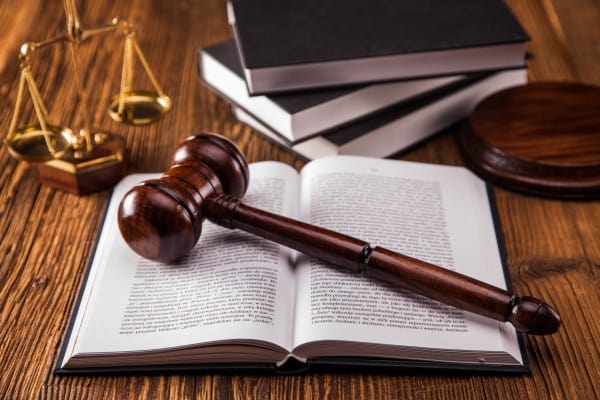
What Is Product Liability Law?
Product liability laws are the guidelines that dictate who is legally responsible for defective and dangerous products. These laws were set in place to help those injured by a defective product seek compensation for medical expenses and damages.
The liability usually lies with the manufacturer of the product or the seller, depending on the circumstances involved. However, each individual case is different, which is why you need a dedicated team of product liability attorneys to help you claim the compensation you deserve. The personal injury attorneys at Branch & Dhillon, P.C. are dedicated to ensuring that you receive monetary compensation to help you recover from your accident. Contact us today for a free consultation.
Types of Product Defects
There are different categories for the types of defects that could cause a product to malfunction and harm someone using it. A plaintiff must be able to prove that the product was defective and that it was this defect that caused their injuries.
Product liability is separated into three categories:
Design Defects
Design defects usually occur due to an error in the design process. This error inherently causes the product to be unsafe for consumer use.
For example, in 2010, Infantino’s baby slings, the “Slingrider” and the “Wendy Bellissmo” models were reported to cause infants who were in them to suffocate. An investigation revealed that the soft material along with the “C” curve design caused the baby’s head to be pushed forward. This cut off the baby’s airways and made it extremely hard for them to breathe.
Manufacturing Defect
 Manufacturing defects happen during the assembly of a product. This can happen to only an individual product or can happen to a whole batch of the product. The responsibility for these defects typically lay with the manufacturer, since they failed to catch the defect before the product was passed onto the consumer.
Manufacturing defects happen during the assembly of a product. This can happen to only an individual product or can happen to a whole batch of the product. The responsibility for these defects typically lay with the manufacturer, since they failed to catch the defect before the product was passed onto the consumer.
In 2010, Graco Harmony High Chairs were recalled after 24 reports of injuries due to unsecured screws and cracking brackets within the chair. These weakened parts would cause the chair to tip over unexpectedly. While the chairs were designed correctly, they were incorrectly assembled, so the product liability case would fall into the manufacturing defect category.
Warning Label / Marketing Defects
It’s not only the production or the design of products that can have a potentially hazardous effect on the consumer. A product that has incomplete or flawed warning labels can lead to injury. All products are required to have proper labeling, sufficient instructions, and adequate safety warnings.
If, for example, a bag of trail mix was labeled to be nut-free, but a part of the mix was cooked in peanut oil, the trail mix would have been improperly labeled. This can be potentially deadly to someone with a severe peanut allergy. Due to the improper labeling, the manufacturer may be held liable for damages and medical expenses accrued by the victim.
Who Is Liable in a Product Liability Case?
Product liability cases may involve the designer, manufacturer, retailer, or multiple parties. Which party is held liable depends on which step in the process the product became defective.
The doctrine of Res Ipsa Loquiter states that “one is presumed to be negligent if he/she had exclusive control of whatever caused the injury, even though there is no specific evidence to support an act of negligence.” In Res Ipsa Loquitur cases, circumstantial evidence is admissible. However, these three elements need to be met:
- The harm suffered by the plaintiff was caused by negligence.
- The defendant broke their duty of care.
- The plaintiff had no fault in the accident.
Strict Liability
 Res Ispa Loquiter often applies to strict liability cases. In these cases, it is no longer the responsibility of the plaintiff to show that the defendant was negligent. Instead, the defendant now has to prove that they were not negligent and that it was the plaintiff’s misuse of the product that caused the accident.
Res Ispa Loquiter often applies to strict liability cases. In these cases, it is no longer the responsibility of the plaintiff to show that the defendant was negligent. Instead, the defendant now has to prove that they were not negligent and that it was the plaintiff’s misuse of the product that caused the accident.
Strict liability refers to cases where the defendant is legally responsible for the consequences of an accident even though there was no intention of causing harm. For product liability cases, this removes the need to prove that a party was negligent. Instead, the only thing the plaintiff needs to show is that the product itself was defective. Under strict liability, the plaintiff can still claim compensation for damages and medical expenses, but the defendant does not face any legal consequences for the defective product besides paying for the damages.
Defective Product Liability Lawyers
During your product liability case, you need a strong team of attorneys to stand by you and help prove the fault of the designer, manufacturer, or retailer. For many years, people of Texas and Virginia have put their trust in the capable hands of Branch & Dhillon, P.C. We are dedicated to helping our clients focus on recovery as we work to get them the compensation they deserve. We offer a no-obligation, free consultation as well as a no-win, no-fee contract. Contact our lawyers today and see why so many people turn to Branch & Dhillon, P.C. for help with their personal injury and product liability cases.

